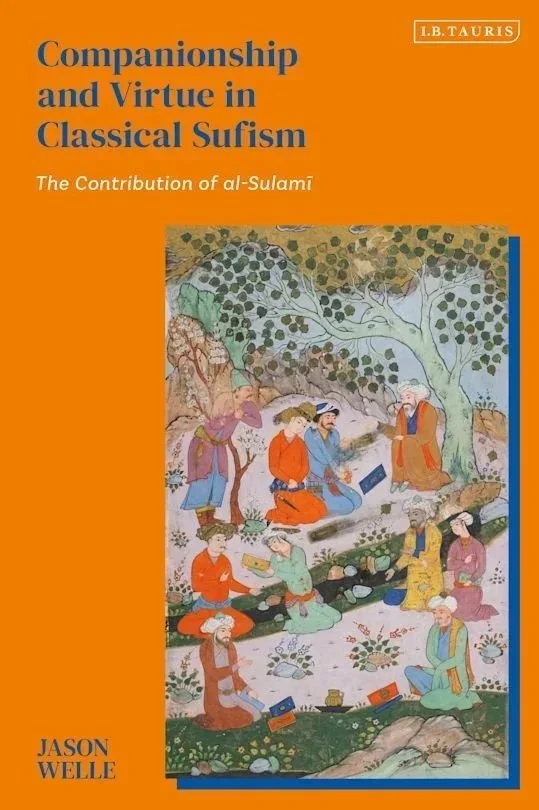2025 Shortlisted Titles
making and remaking empire in early qajar iran
by assef ashraf
Cambridge UNIVERSITY PRESS
In 1722, the Safavid empire collapsed. An empire that ruled for over two centuries, in its heyday it spanned parts of Central Asia, the Caucasus, and present-day Iran. The decades following its fall were ones of unrest and discord, and it was only with the rise of the Qajars in the 1780s that a level of stability was restored. Assef Ashraf devotes this book to an analysis of the making of the Qajar empire. It adopts a socially-oriented approach to political history - an approach that examines the discourse and political practices, and the centers and peripheries, of empire. Each chapter focuses on a particular practice that was at the heart of Qajar governance - land administration, gift giving, marriage, political correspondence, provincial diplomacy, and territorial conquest and tribal relations. By situating the formation of Qajar Iran in its early nineteenth-century context, Ashraf highlights the overarching themes of transition and change.
toiling for oil: a social history of petroleum in iran
by touraj atabaki
cambridge UNIVERSITY PRESS
Often referred to as the ‘Oil Century’, the Twentieth Century marked the rise of petroleum as a pivotal force in global economics and politics. While many studies have explored the political relations between oil corporations and the Iranian state, this innovative book builds an intricate picture of the social history of petroleum in Iran, after its discovery there in 1908. Through expert interviews and on-the-ground reports, Touraj Atabaki shows the seismic impact of oil: from the building of roads to an influx of migrant labour. Offering insights into the lives and challenges of oil workers alongside analysis of wider geopolitical conflicts, Toiling for Oil traverses two world wars, industrialisation and modernisation, attempts at nationalisation in the 1950s and the political crises of the late 1970s. An essential read for anyone interested in Iran’s unique position in the global economic landscape as oil continues to shape our world.
prophet of reason: science, religion and the origins of the modern middle east
by peter hill
oneworld
In 1813, high in the Lebanese mountains, a thirteen-year-old boy watches a solar eclipse. Will it foretell a war, a plague, the death of a prince? Mikha’il Mishaqa’s lifelong search for truth starts here. Soon he’s reading Newtonian science and the radical ideas of Voltaire and Volney: he loses his religion, turning away from the Catholic Church. Thirty years later, as civil war rages in Syria, he finds a new faith – Evangelical Protestantism. His obstinate polemics scandalise his community. Then, in 1860, Mishaqa barely escapes death in the most notorious event in Damascus: a massacre of several thousand Christians. We are presented with a paradox: rational secularism and violent religious sectarianism grew up together.
By tracing Mishaqa’s life through this tumultuous era, when empires jostled for control, Peter Hill answers the question: What did people in the Middle East actually believe? It’s a world where one man could be a Jew, an Orthodox Christian and a Sunni Muslim in turn, and a German missionary might walk naked in the streets of Valletta.
the damascus events: the 1860 massacre and the destruction of the old ottoman world
BY eugene rogan
Allen Lane
This remarkable book recreates one of the watershed moments in the history of the Middle East: the ferocious outbreaks of disorder across the Levant in 1860 which resulted in the massacre of thousands of Christians in Damascus.
Eugene Rogan brilliantly recreates the lost world of the Middle East under Ottoman rule. The once mighty empire was under pressure from global economic change and European imperial expansion. Reforms in the mid-nineteenth century raised tensions across the empire, nowhere more so than in Damascus. A multifarious city linked by caravan trade to Baghdad, the Mediterranean and Mecca, the chaos of languages, customs and beliefs made Damascus a warily tolerant place. Until the reforms began to advantage the minority Christian community at the expense of the Muslim majority.
But in 1860 people who had generally lived side by side for generations became bitter enemies as news of civil war in Mount Lebanon arrived in the city. Under the threat of a French expeditionary force, the Ottomans dealt with the disaster effectively and ruthlessly - but the old, generally quite tolerant Damascene world lay in ruins. It would take a quarter of a century to restore stability and prosperity to the Syrian capital.
This is both an essential book for understanding the emergence of the modern Middle East from the destruction of the old Ottoman world, and a uniquely gripping story.
companionship and virtue in classical sufism: the contribution of al-sulami
BY jason welle
ib tauris
Al-Sulami (d. 412/1021) was an influential classical Sufi master whose works espoused companionship as a way for believers to experience God's guidance and cultivate religious virtues. This book provides a historical reconstruction of Sufi companionship in Khurasan in the period, arguing that al-Sulami's concept of suhba (companionship) envisioned the transformation of society as whole, not just the master-disciple relationship. Bringing debates in contemporary virtue ethics to bear on al-Sulami's spiritual method, the book offers an original analysis of the latter's thought that will be of interest to scholars of early Islam and classical Sufism as well as moral theologians interested in virtue ethics, character and friendship.




